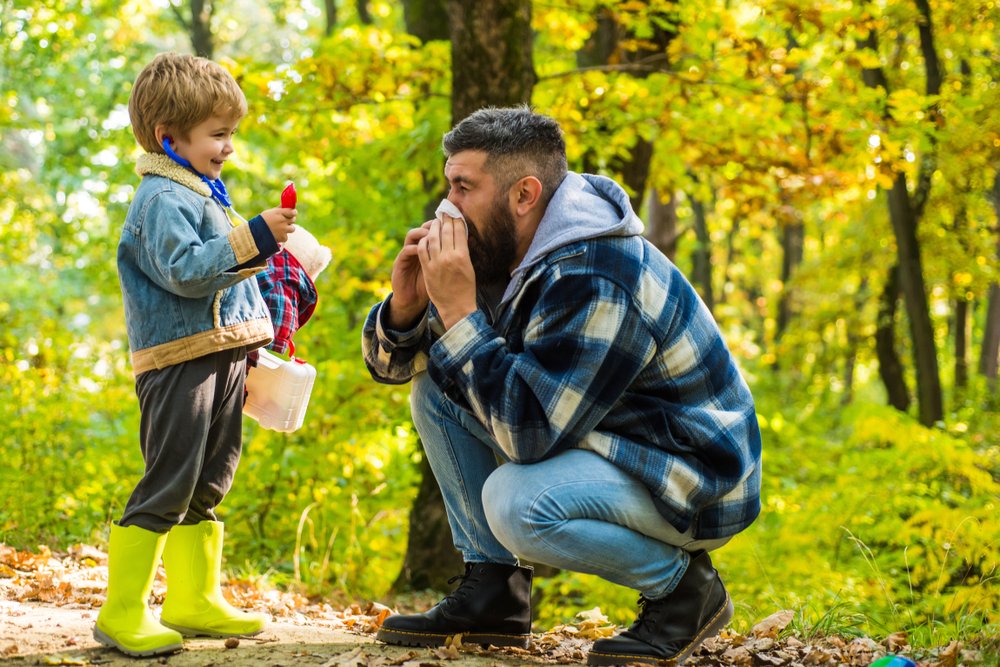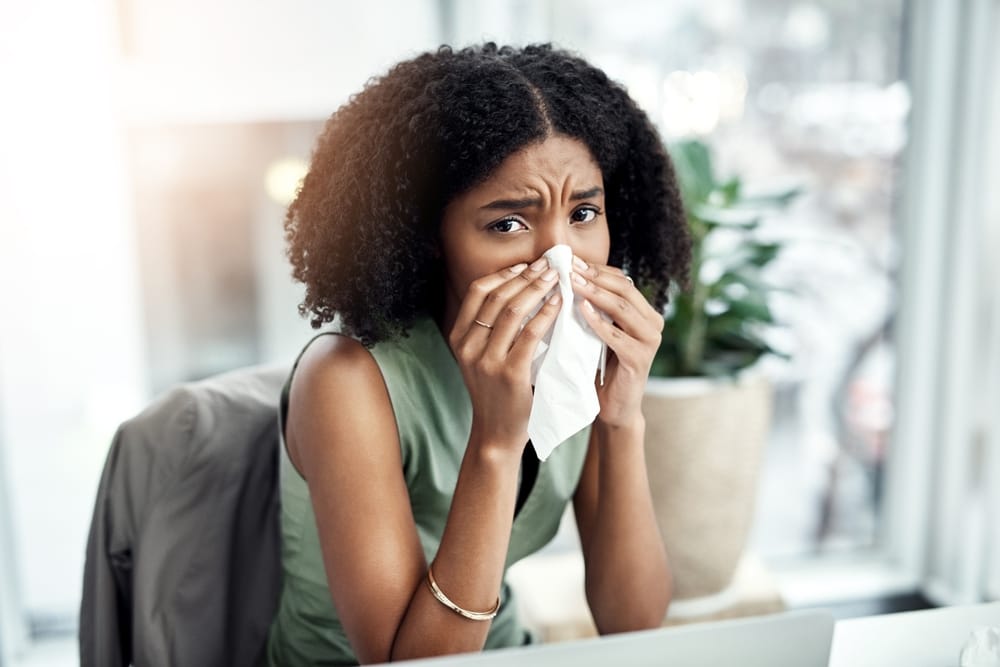
As the days get shorter and temperatures cool, many Atlanta families will enjoy some relief from their seasonal allergies. But for plenty of others, the beginning of fall is a sign it’s time to seek out an effective treatment for nasal allergies. Allergy triggers vary in intensity throughout the year, and certain allergens start to spike as we move into fall. If you’re one of the many experiencing fall allergy symptoms, here are some reasons why.
Common Reasons Nasal Allergy Symptoms Are Worse During the Fall
From nasal congestion and itchiness to sinus pressure and watery eyes, nasal allergy symptoms can be quite uncomfortable. However, accurately determining the exact triggers of your fall allergies can only be revealed with allergy testing.
Ragweed Pollen
Ragweed pollen ranks highly among the allergens that can cause allergic rhinitis. With ragweed releasing its pollen in late summer and early fall, the chance of exposure is high. In addition, wind spreads ragweed pollen over great distances, so avoiding contact is truly difficult.
Mold Spores
Piles of fallen leaves are a familiar sight during the fall months. But for those with nasal allergies, damp leaves are often not a good sign. These wet areas present the perfect conditions for mold spores to grow, and the tiny airborne spores may trigger an allergic reaction.
Our infographic on tips for managing common allergy triggers details many more of these hidden allergens.
Dust Mites
While dust mites can be a problem at any time of year, fall introduces more factors for those with nasal allergies. Turning on a heating system that has been dormant during the summer can release dust into the home. And when more time is spent indoors, the chances of exposure to dust may increase.
Weather Changes
Cooler temperatures are a welcome break from the summer heat, but strong winds will disperse pollen and mold spores over greater distances. Also, the fluctuating temperatures of warm days and cooler evenings can irritate and sensitize the nasal passages to allergens.
Environmental Changes
Returning to school or work after a summer break can also contribute to increases in allergy symptoms. Dust and other allergens may accumulate in closed-up buildings, and in addition, many structures (not just older buildings) may have hidden mold issues.
How to Prevent and Manage Nasal Allergies During the Fall
If nasal allergies are causing discomfort during the fall, your allergist will be on hand to identify the best treatment. The appropriate solution may involve practical steps like checking pollen counts and keeping your home dust-free. However, relief from allergies could require medication, comprehensive sinusitis treatments and possibly allergy shots.
Access Nasal Allergy Treatments in Atlanta
If you are experiencing allergy symptoms, visit the Chacko Allergy, Asthma and Sinus Center for testing and treatment services. Our centers are located in Alpharetta, Atlanta, Canton, Cumming, Druid Hills, Duluth and Johns Creek. Call (678) 668-4688 or request an appointment today.



